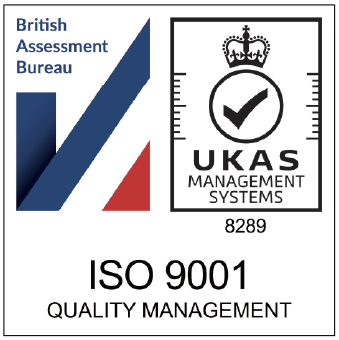Today, more than ever, consumers don’t restrict their shopping habits to individual channels. Be it online marketplaces, eCommerce stores, or social media channels, consumers want to be able to buy your products from a number of channels. Which makes having a successful omnichannel order fulfilment strategy support important. Find out how to make your omnichannel fulfilment successful below…
Why is omnichannel eCommerce important?
How do you currently sell your products? If you’re reading this, the chances are you sell your products via an online store.
But, do you also sell your products through other channels such as Amazon, eBay or via social media platforms like Instagram?
Because, if you aren’t, you should be.
Selling your products through multiple channels is what’s known as omnichannel retail or omnichannel eCommerce.
The key point about omnichannel eCommerce is that it provides you with a much bigger audience of potential customers.
Don’t just take our word for it, though. According to a study of 46,000 shoppers, 73% of online shoppers use multiple channels while purchasing online.
In other words, if you’re restricting the promotion and sale of your products to only one or two channels (such as your online store), then you’re going to be losing out on potentially large numbers of sales.
“Very well, then”, you say. “I’ll start selling my goods through some additional channels”.
Great! That’s a brilliant decision! But, with the transition to omnichannel eCommerce, you’ll also have to delve into the world of omnichannel fulfilment…
What is omnichannel fulfilment?
Say you took our advice, and you’re promoting and selling your goods across a variety of channels.
You’re, now (hopefully!), receiving orders from each of these channels.
Omnichannel fulfilment, then, simply refers to the process of fulfilling orders from multiple different sales channels, in an integrated, uniform way.
So, whether you receive an order from your online store, or an order from your Amazon merchant account, you have a consistent, documented process for handling that order and getting it to the end customer.
Omnichannel fulfilment typically takes the form of having a single digital dashboard, which is integrated with your different sales channels. This allows you to see your orders in a single place, providing maximum visibility and ensuring that no order gets overlooked.
Your orders will then be processed, drawn from inventory in a warehouse (or warehouses), picked, packed and shipped to the customer.
You can tell if you’ve achieved a successful omnichannel fulfilment process if your customers can’t tell the difference whether they have ordered from you using Amazon, eBay, your online store or any other channel.
The secrets to a successful omnichannel order fulfilment strategy
It’s all very well talking about how important a smooth, seamless, omnichannel fulfilment process is, but how exactly do you go about achieving it?
3PL’s fulfilment experts have provided their top tips below.
Order visibility
Perhaps the most important part of creating a successful omnichannel fulfilment strategy is ensuring your team has complete visibility over all of your orders.
Moving from receiving orders from a single channel (e.g. your online store), to multiple (e.g. your online store, Amazon, and eBay), makes order visibility more important than ever. If you lose track of orders or forget about them completely, it won’t be long before you have an angry customer on the phone!
As we mentioned earlier, the best way to maintain order visibility across multiple channels is to invest in a digital dashboard that integrates all of your retail channels and funnels them all into a single place.
Inventory management
With orders being received from multiple retail channels, it’s vital that you keep your inventory as up-to-date as possible.
This is especially true if you are fulfilling all of your orders from a single inventory.
It’s also important that you keep your inventory up-to-date at all times if you are working with retail channels such as Amazon, as you can be penalised if you advertise products as being in stock when they aren’t.
Partnering with a 3PL can help eliminate inventory control worries, as a third-party logistics provider will be able to take care of your inventory management on your behalf.
Communication
Communication, communication, communication! These should be the watchwords of your omnichannel fulfilment strategy.
Whether a customer is ordering from your online store, eBay, or a social channel like Instagram, it’s vital that you communicate with them through every stage of their purchasing journey.
The days of being able to make do with an order receipt email are over.
By partnering with a third-party logistics provider like 3PL, this communication can be handled on your behalf. That’s because companies like 3PL are able to provide real-time updates on despatches, carrier tracking, returns and more.
Shipping
Regardless of where they have placed their order, consumers expect their orders to be correct, well-packaged, and to arrive on time.
That’s why it’s crucial that you are able to quickly and efficiently pick, pack and ship orders.
Whilst this sounds simple, it’s important to be aware that certain retails channels (particularly Amazon), have specific requirements as to how orders should be packaged and shipped.
That’s why it often makes the most sense to outsource your omnichannel fulfilment to a specialist provider like 3PL, which has extensive experience dealing with the specific shipping requirements of multiple retail channels.
Returns
It doesn’t matter whether you’re selling your goods via your online store, a social media platform or an online marketplace, you’re going to have to deal with returns.
In fact, according to research recently conducted by Shopify, ‘a quarter of all consumers return between 5% and 15% of the items they buy online’.
So, handling returns needs to be an important cornerstone of your omnichannel fulfilment strategy.
And, like shipping, many online retail channels have their own specific requirements for dealing with returns. Therefore, the learning curve for handling returns across multiple channels can be steep.
But, not if you outsource your omnichannel fulfilment. Companies like 3PL are set up to handle returns across multiple retail channels and are adept at handling the specific requirements of multiple retail channels.
Outsource your omnichannel order fulfilment today
As you’ve just read, there are a number of different ingredients that go into the ‘secret sauce’ of a successful omnichannel order fulfilment strategy.
Many of these ingredients require extensive experience and expertise in order to get them right. That’s why it makes sense to outsource your omnichannel order fulfilment to a specialist provider like 3PL.
Not only will your omnichannel order fulfilment be smoother, more efficient and keep customers happy, but you’ll find it’s far more cost-effective than having to do it all yourself.
Find out more about 3PL’s omnichannel order fulfilment services today
For more eCommerce fulfilment, shipping and marketing advice, read the 3PL blog…
How to Manage Your Stock Levels Effectively | A Practical Guide to Delivery Management | When to Make the Switch From In-House to Outsourced Fulfilment?
Speak to 3PL about your eCommerce order fulfiment
It’s time to supercharge your ecommerce brand business and overtake your competitors. Speak to 3PL today and find out how we can take your ecommerce fulfilment to the next level.


